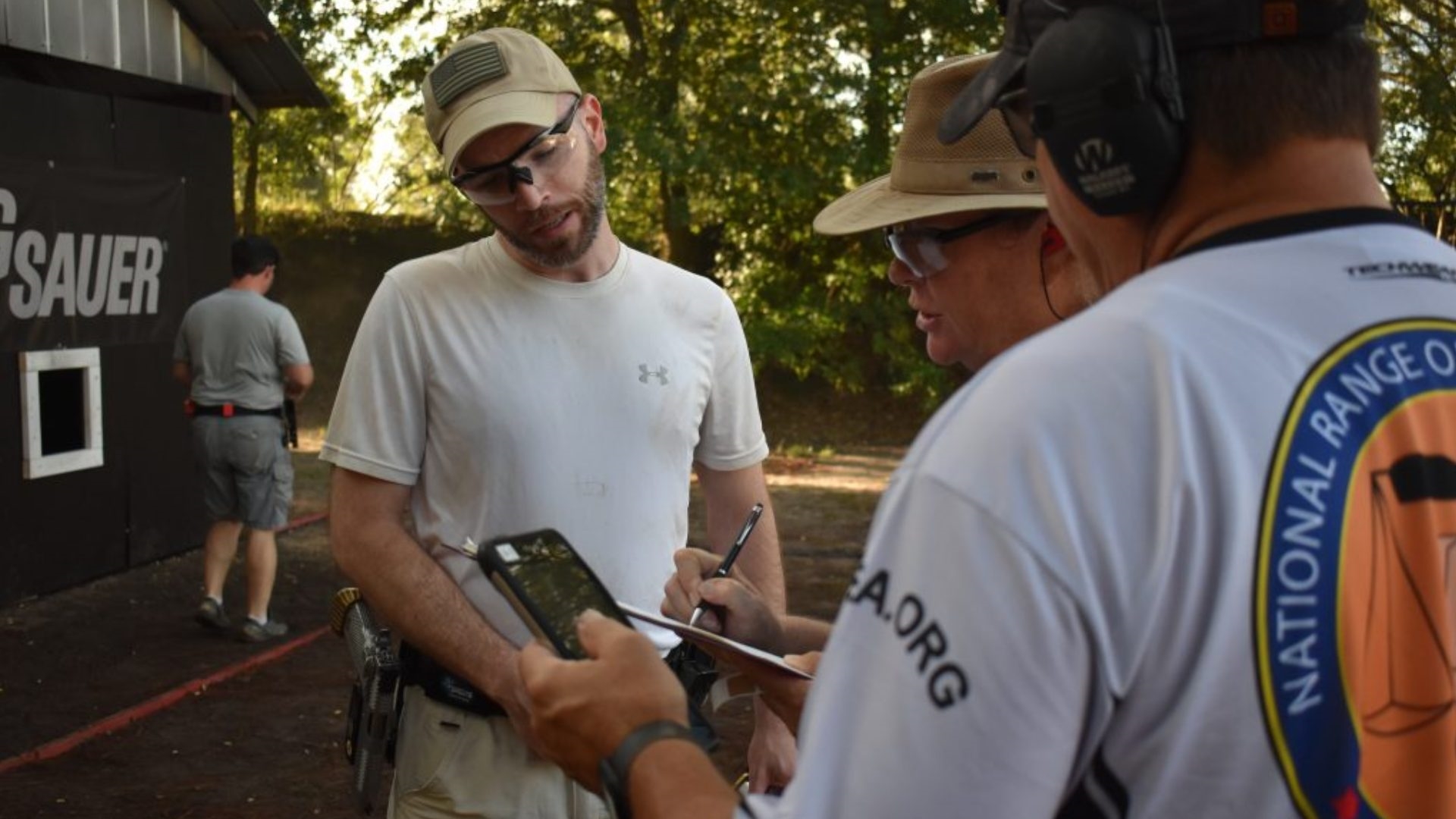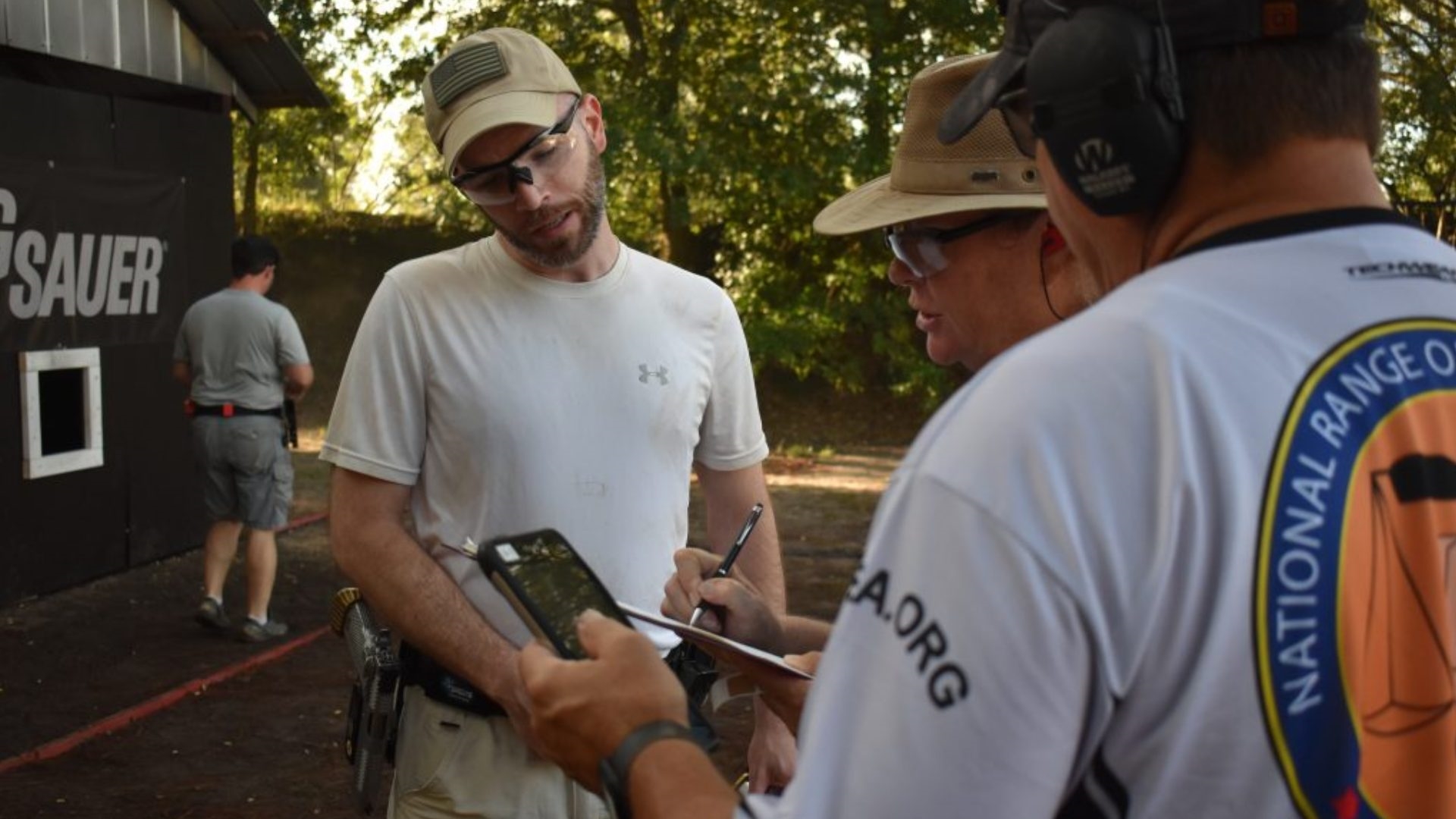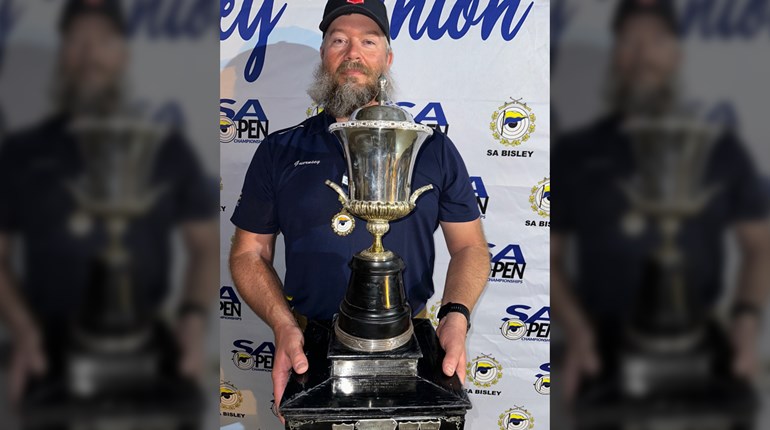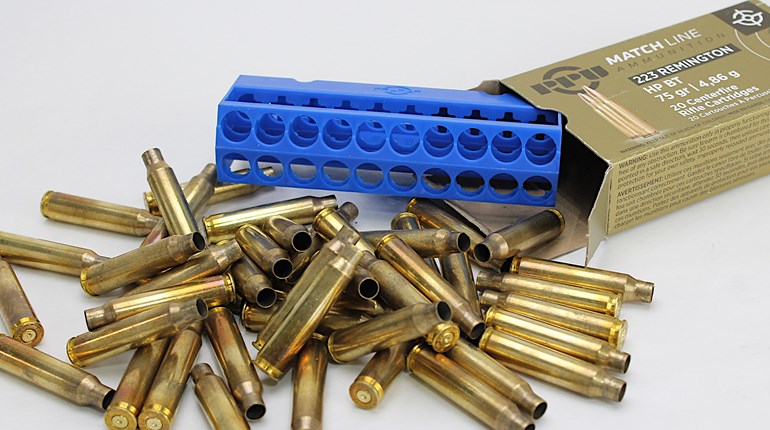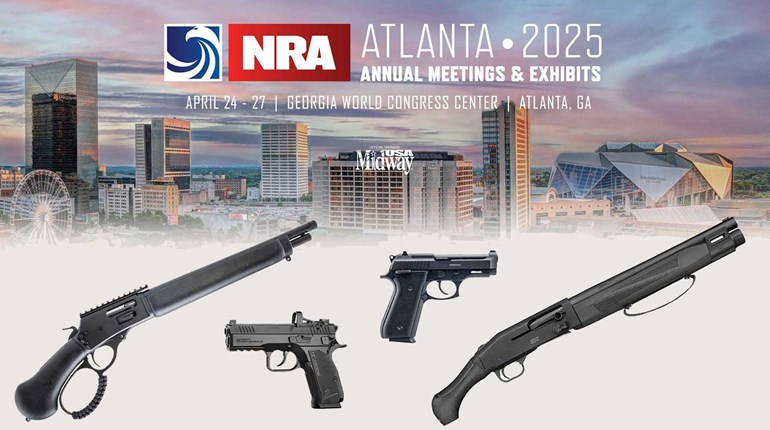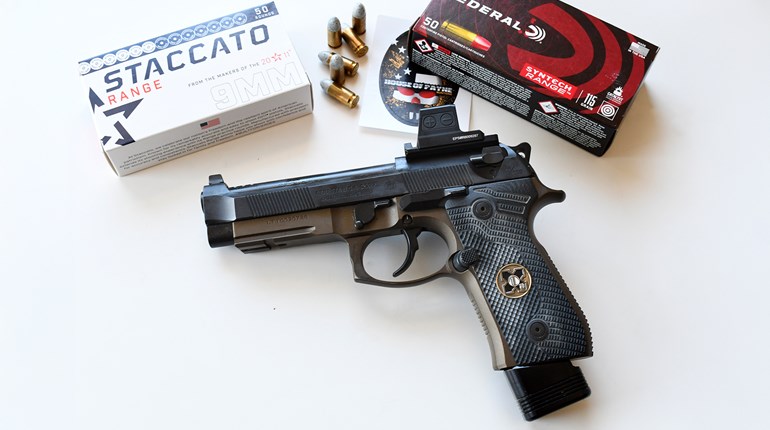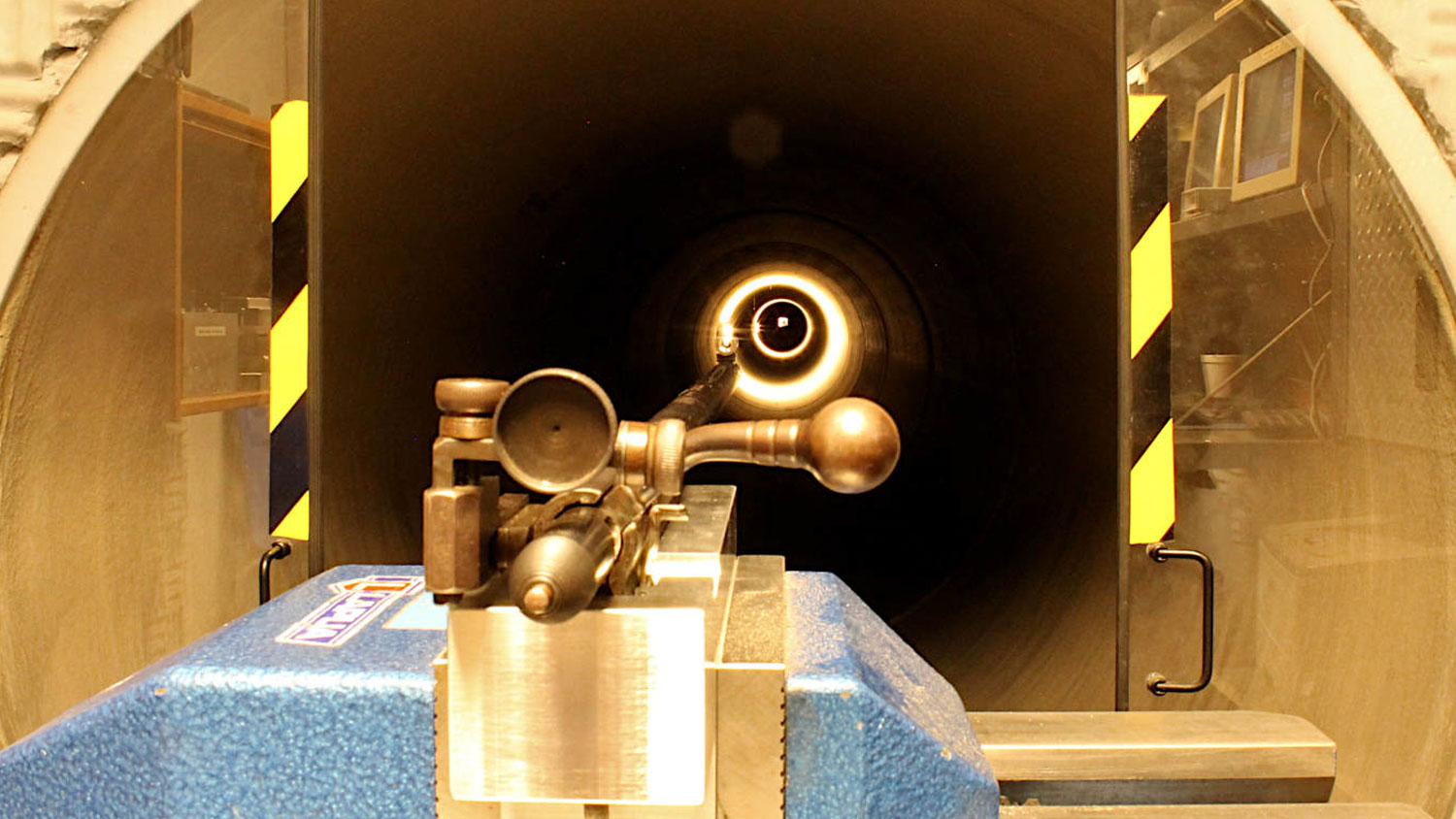
What if you could hire a state-of-the-art testing facility to determine the best match-grade .22 LR ammo for your competition rifle, and at an ammo-and-labor cost less than what you’d pay for trying out a half-dozen boxes of match ammo yourself? You can.
If you’re serious about smallbore competition, Lapua will test its line of match ammo in your rifle, and you don’t have to ship it to its home base in Finland. Capstone Precision Group in Mesa, AZ, is the sole importer and distributor of Lapua ammunition in the U.S., and its test facility in the desert parallels those in Europe where Lapua has been evaluating rifle/ammo combos used by Olympic shooters for years.
“Everything matters”
Rifles shipped to Mesa (part of the Phoenix metropolis) for testing go to Daniel Cliff, Lapua rimfire service center manager. Cliff started smallbore competition as a junior and scholastic shooter. His focus and intimate familiarity with the sport’s rifles and ammunition make him a natural for the meticulous work of ammo testing. On the day I observed Cliff’s testing protocols, Capstone Marketing Manager Ryan Neal, also a competitive shooter, accompanied me to help answer questions.
To test a customer’s rifle, Cliff removes the barreled action from the stock and mounts it in an aluminum block that is machined to precisely fit the specific action. He clamps the block in a heavy steel vise bolted to a concrete- and reinforced-steel pedestal sunk six feet into the ground. The pedestal “floats” separately from the building’s foundation so that the vibrations from footsteps, closing doors and other such disturbances can’t induce vibration into the barrel during firing.
“When you’re measuring something to such a small degree, everything matters,” Neal said.

The Arizona Lapua facility uses a high-tech BallMan Meyton Elektronic system of integrated sensors and software. The system includes a built-in redundant double check of sensor data, which assures a group recording accuracy tolerance of +/- 1/100th of a millimeter. “It’s definitely the most- accurate system out there,” Neal said.
Shots go down a climate-controlled 100-meter concrete tunnel and the BallMan system electronically plots them simultaneously at 50 and 100 meters. “We test the same way here that Lapua in Europe tests ammo lots for the Olympics,” Neal said, “but here, we test for groups at both 50 and 100 meters.”
Cliff said the first 10 shots are typically needed as bore-fouling shots before the actual testing begins. Then Cliff will fire perhaps eight 10-shot groups beginning with Lapua Center X, Midas + and X-ACT ammo. That’s usually enough to find a good rifle/ammo combination, but Cliff will continue testing until he finds that right combo, or else determines there may be some fault with the rifle.

“It takes two to four hours to test—it depends on the individual rifle,” Cliff said. “Sometimes a rifle can be more of a challenge than others, and sometimes I can diagnose a problem with a rifle.” When asked his opinion on the most important aspect of a .22 LR match rifle, Cliff didn’t hesitate. “Chamber dimensions are critical.”
As a side note, Cliff said he has no personal opinion yet on Bentz chambers, as he’s never tested them at the facility. A Bentz chamber is one with dimensions slightly larger than a match-grade chamber, but still “tighter” than a standard .22 LR chamber as found on hunting and plinking rifles. The intent of the Bentz chamber is to improve a .22 LR’s precision while still allowing reliable, trouble-free semi-automatic cycling in competitions that feature semi-automatic firearms.
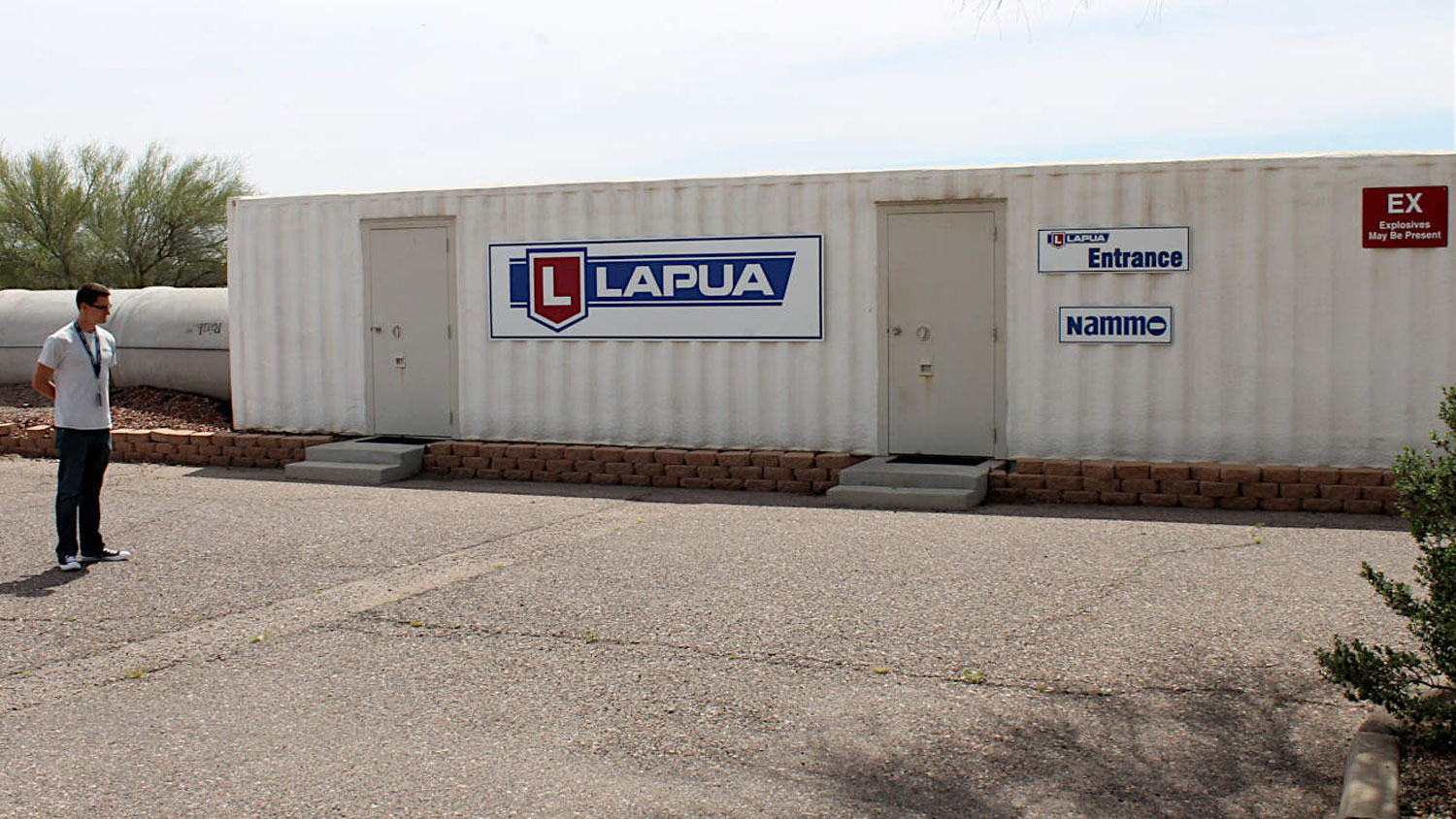
Old rifle? Can do!
In bringing a classic (okay, old) Remington 513T Matchmaster rifle for testing, I threw the Lapua test center a bit of a loop, as it didn’t have an aluminum block to fit it. However, one was machined to fit, which added another week or so to testing time. I’m not the first customer to do this, and so the center’s collection of specific-fit aluminum blocks continues to grow. Alternatively, Cliff will sometimes use a special fixture that clamps onto the barrel, but he feels the action-block fixture is really the best way to go.

The integrated sensor/software system plots every shot on a computer monitor as they go downrange, displaying velocities and other data to aid in testing and troubleshooting. Upon completion, Cliff prints out a hard copy of each group for evaluation and comparison. Some split very fine hairs indeed, with group sizes often varying from each other by only a fraction of an inch, while others may show a dramatic preference for a specific Lapua ammunition. The results and Cliff’s ammo recommendation go back with the rifle to the owner (either directly or to an FFL where state law requires it or the customer desires). Cliff also encloses information on the customer’s closest source of retail Lapua ammunition, including the specific case lot of the ammo tested and recommended. The Mesa Lapua facility does not sell ammo.
New ammo like your old ammo
The Lapua Rimfire Test Center charges a nominal $50 fee for testing. Even crunching numbers in your head, you can readily see that isn’t profitable enough to pay for the testing time and ammo, much less the cost of the equipment and building the test facility—even when amortized over many years. The payback for Lapua is actually in sales of ammunition. Manufacturing several different match-grade .22 LR ammo offerings means that one of Lapua’s is bound to shoot well in just about any match-grade rifle. Serious rimfire competitive shooters tend to buy ammo in case lots, so reaching out to individual competitors in this way is marketing that pays for itself.

The major benefits to competitors is in saving both time and money. You know that testing different ammo to find what shoots the smallest groups in a specific rifle is time-intensive and may require several outings over a couple of weekends, whereas the Lapua Test Center can complete the task in a few hours. Testing requires buying a variety of different ammunition for testing; at around $10 to $14 or more per box of top-tier .22 LR, testing quickly surpasses the Lapua Test Center’s $50 mark. What’s the fine print? Nothing you don’t already know: just the cost of shipping both ways and whatever restrictions and associated costs your particular state imposes. Of course, the center tests only Lapua ammunition. That being said, Cliff also conducts limited testing with SK brand ammunition at customer request. Additionally, he can test some competition handguns using a Ransom Rest on a case-by-case basis.
There’s also the confidence factor. In performing our own testing we inevitably ask ourselves, “Hmm ... was that shot really a flyer, or was that me? Or was there a bit of wind?” Or, “Nothing is shooting well yet; is there a problem with the bedding?” The Lapua Test Center’s protocol eliminates any error that may be induced by the shooter, the wind or by the fit of the barreled action to the stock.
“Shooters who can really benefit are those who tell us, ‘My rifle really likes Ammo X but it’s discontinued—can you find me something that shoots like it?’” Cliff said. Which, coincidentally, was my own reason for bringing the old Matchmaster out for testing. The rifle is a one-holer with its contemporary Winchester Western Super Match Mark III ammunition, long discontinued and now with only about 150 rounds left in my ammo can. It appears Cliff found Lapua’s Midas+ to be its modern replacement.
I’m fortunate that the Lapua Test Center is only a two-hour drive away, saving me the shipping cost. Mesa, AZ, may not exactly be in your own neighborhood, but it’s a lot closer than Finland.
To test your .22 LR match rifle, make an appointment at www.capstonepg.com or click here.
See more: All About Precision Rimfire Competition





